
Friedrich Blass was a German classical scholar.

Johannes Stark was a German physicist who was awarded the Nobel Prize in Physics in 1919 "for his discovery of the Doppler effect in canal rays and the splitting of spectral lines in electric fields". This phenomenon is known as the Stark effect.
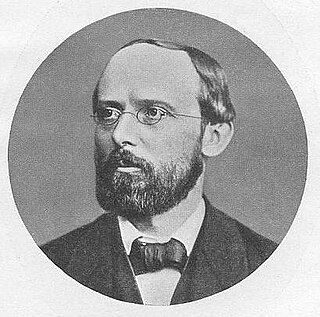
Wilhelm von Christ was a German classical scholar.
Die Fragmente der griechischen Historiker, commonly abbreviated FGrHist or FGrH, is a collection by Felix Jacoby of the works of those ancient Greek historians whose works have been lost, but of which we have citations, extracts or summaries. It is mainly founded on Karl Wilhelm Ludwig Müller's previous Fragmenta Historicorum Graecorum (1841–1870).
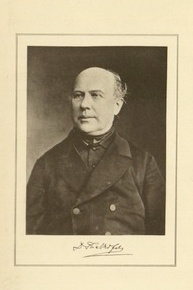
Valentin Thalhofer was a German Roman Catholic clergyman and theologian.

Franz Boll was a German scholar and contemporary of Cumont. He became Professor of Classical Philology at the University of Heidelberg.
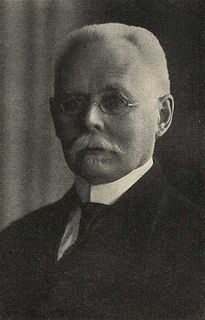
Wilhelm Schmid was a German classical scholar, born at Künzelsau.

Kurt Aland, was a German theologian and biblical scholar who specialized in New Testament textual criticism. He founded the Institut für neutestamentliche Textforschung in Münster and served as its first director from 1959–83. He was one of the principal editors of Nestle-Aland – Novum Testamentum Graece for the Deutsche Bibelgesellschaft and The Greek New Testament for the United Bible Societies.
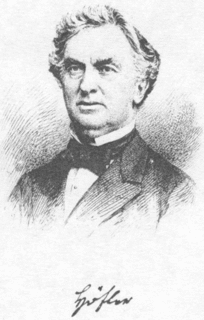
Konstantin von Höfler was a German church and general historian, publicist, ennobled anti-nationalist politician and poet.
Uncial 065, ε 1 (Soden), is a Greek uncial manuscript of the New Testament, dated paleographically to the 6th century.
Uncial 0286, is a Greek uncial manuscript of the New Testament. Palaeographically it has been assigned to the 10th or 11th century.
Minuscule 2344, is a Greek minuscule manuscript of the New Testament.

Johann Martin Augustin Scholz was a German Roman Catholic orientalist, biblical scholar and academic theologian. He was a professor at the University of Bonn and travelled extensively throughout Europe and the Near East in order to locate manuscripts of the New Testament.
Walter Friedrich Gustav Hermann Otto was a German classical philologist particularly known for his work on the meaning and legacy of Greek religion and mythology, especially as represented in his seminal 1929 work The Homeric Gods.
Johannes Mötsch is a German archivist and historian.
Johannes Waitz, also Hans Waitz, was a German Biblical scholar specializing in the New Testament Apocrypha and source-critical studies. He was an Evangelical pastor in Darmstadt until 1927, and not to be confused with the Austrian Catholic bishop of the same name.
Victor Emil Gardthausen was a German ancient historian, palaeographer, librarian, and Professor from Leipzig University. He was author and co-author of some books; editor of ancient texts.
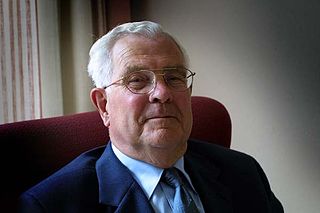
Albertus Frederik Johannes Klijn was a Dutch scholar of the New Testament and early Judaism and Christianity at the Rijksuniversiteit Groningen. He was best known for his introductory work on the New Testament, and then later for his publications on early Christian apocryphal literature.

Otto Piper (1841–1921) was a German architectural historian who, with August von Cohausen (1812–1896), is regarded as one of the two founders of scientific research into castles.
Klaus Vondung is a German scholar on the fields of cultural and German studies. The focus of his academic work lies on the interplay of literature, politics and religion during the German Empire, Nazi Germany and beyond.












